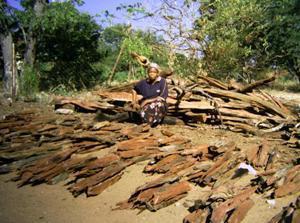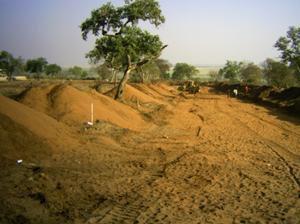Joyce Lepetu
In this study I will examine the factors that determine forest dependency, attitudes and perceptions of local residents towards KFR management.

The Kasane Forest Reserve (KFR) in Botswana is of great significance to the local people and environment of the region. Currently a comprehensive KFR management plan is being developed to meet the various needs and aspirations for the present and future. However, essential data on the needs, values, and perceptions of local communities that are critical to the process do not exist. In the proposed study, I will address this problem, by examining the factors that determine forest dependency, attitudes and perceptions of local residents towards KFR management. Furthermore, the stakeholders’ preferences in generating management options will be assessed to provide a framework for biodiversity conservation.

The first objective is to carry out an empirical survey to determine the extent of forest dependency and factors influencing dependency in three communities/villages which surrounds the Kasane Forest Reserve. The second objective is to explore the knowledge and attitudes of local residents towards management of KFR. The final objective is to assess the potential for a multiple use approach/zoning by incorporating stakeholders’ preferences in the management. Three hundred survey questionnaires will be administered to households in communities of three villages surrounding the KFR; namely, Kasane, Lesoma and Kazungula to estimate their dependency and their attitudes and knowledge towards conservation of CFR.
Survey data will be analysed using the Statistical Package for the Social of Sciences (SPSS) to get descriptive analysis from survey results. Multiple regression analysis will be used to assess the effect of socio economic and location factors on dependency, awareness and attitudes. The quantification of the management options from stakeholders’ perspectives will be analysed with the application of decision making analysis tools, specifically Analytic Hierarchy Process (AHP) model. Stakeholders’ preference analysis using AHP model will be generated by a computer model ‘Expert Choice’ generated from pairwise comparisons to produce weights, consistency ratios and rankings by chosen respondents using representative democracy forum.
It is expected that people of different demographic and socio economic characteristics are likely to have varying needs and preferences, and posses differing attitudes, perceptions and values towards conservation policy. The result of this research will be relevant not only to KFR management planning in Botswana, but will also contribute to the debate on conservation-production conflict in natural resource management.